At HackNJIT, Companies Invest in New Jersey’s Tech Talent
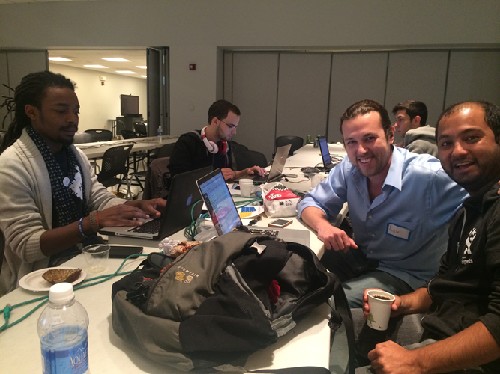
Walk late at night through the halls of the NJIT Student Center, and you will probably find a few techies hunched over keyboards, cobbling together the latest technologies.
However, on November 8-9, those few swelled into a full platoon of weekend code warriors, all competing for the honor of being selected as the creators of the most innovative solutions.
The catch? All the projects had to be conceptualized, implemented, and demoed within 24 hours. From 2:30 p.m. Saturday until 2:30 p.m. Sunday, 15 teams made use of the latest APIs, provided by a number of sponsors, to hack, patch, and otherwise rig solutions to technology’s pressing questions.
The official event title was “Hack NJIT 2014,” though many of the 150 registrants hailed from other universities. For 24 hours, the competitors vied for cash prizes supplied by NJIT ($1,500 for first place, $1,000 for second and $500 for third), and for drones and tablets supplied by sponsors.
In addition to NJIT, official sponsorship was provided by Major League Hacking, while the corporate sponsors included AT&T, Addteq, Genband, Yashi, Audible,eMazzanti, FDM, Hearst, IBM Bluemix, Merck, North Jersey Federal Credit Union, Ordr.in, and Tata Consultancy.
These companies, which are sometimes considered competitors, came together to invest in the next generation of technologists and to strengthen the New Jersey tech community.
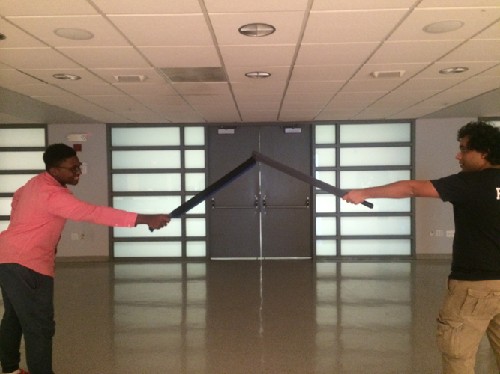
Some corporate sponsors supplied prizes like drones or cash, others brought food, and a few even contributed ready-to-use APIs. A quick scan of the sponsors’ tables revealed lots of information on employment, indicating that many of these companies saw the chance to pick up a top talent.
“We think the expense [of sponsorship] is well worth it,” said Sukhbir Dhillon, founder and president of Addteq. “Not only do we get the opportunity to meet tomorrow’s innovators, we fulfill our responsibility to help develop the tech economy of New Jersey, as well as provide bridges to individuals who are looking for a pathway to economic success.”
NJIT explained that the logistical costs of hosting the event were small compared with the value in terms of the school’s four-pronged mission of education, research, service and economic development. In addition, the event was actually organized by NJIT students, who did everything, even hard-wiring an Ethernet network for the hackers to work on.
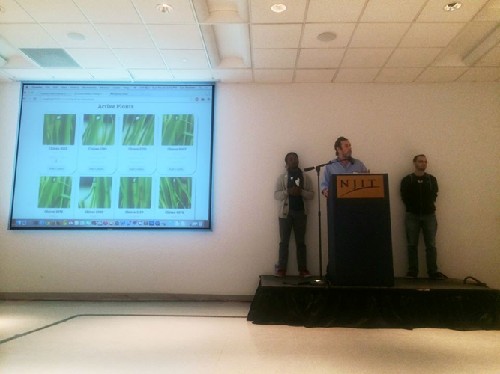
“Many of NJIT’s students are first-generation college, so the fact they are able to become truly indispensable to the global economy means that the innovations they bring to the table will be help solve the pressing issues of the 21st century,” said William McDermott, director of development at NJIT’s College of Computing Sciences.
Many projects produced at the hackathon were not just technologically innovative, but also had a strong social component. One project, conceptualized and executed by Factory Fresh Food, focused on using sponsor-provided APIs to remotely monitor and run an urban agricultural installation that incorporates hydroponics and aquaponics (fish farming).
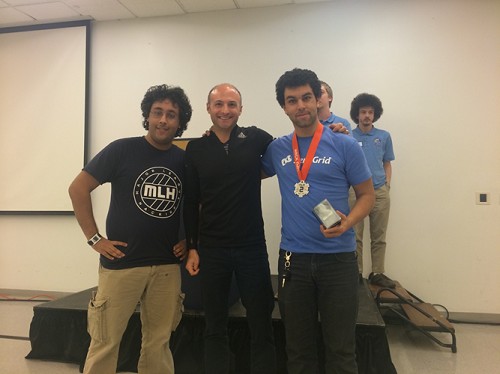
Lex Dreitser, of Factory Fresh Food, based at The Art Factory, in Paterson, N.J., explained the principle behind the project. “Traditionally, the barrier between humans and plants has been communication,” he said. “Using the Atlassian HipChat API to communicate with Arduino sensors, Factory Fresh Food is bridging that gap by giving plants in an urban farm the ability to alert their farmers when they need something like more water, pH balancing, or temperature change.
“Add in gamification, which has already proven quite compelling for the public in the case of growing plants … and there’s a real model for decreasing miles to table, localizing and strengthening aspects of struggling economies, and making food production networks more robust.”
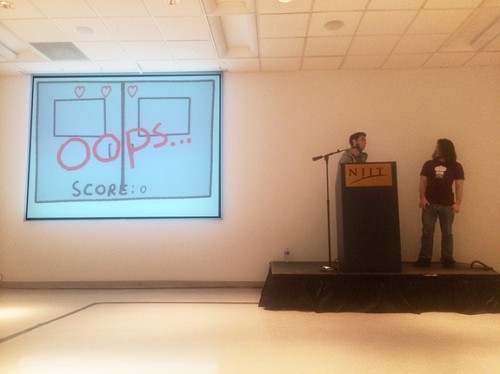
The event featured many projects, ranging from 2D collaborative games to bitcoin miners taking advantage of cloud processing, to food ordering from IM clients like HipChat. In the end, three projects were selected by the judges as the winners.
[Ed. Note: As it turned out, Factory Fresh Food took the event. Second place went to BitCloud, a bitcoin-mining program that uses cloud resources to obtain and send bitcoins; and third place to rly.sexy.mice, a multiplayer application that uses the cursor to play minigames.]
Bio:
Brendan Kaplan has worked at the intersection of technology and human interaction for the past decade. He has authored award-nominated research on the similarity between brain development and city development, consulted for several Fortune 500 companies, and facilitated several sales of software-technology intellectual property rights. He is currently a senior marketing consultant for Addteq.

